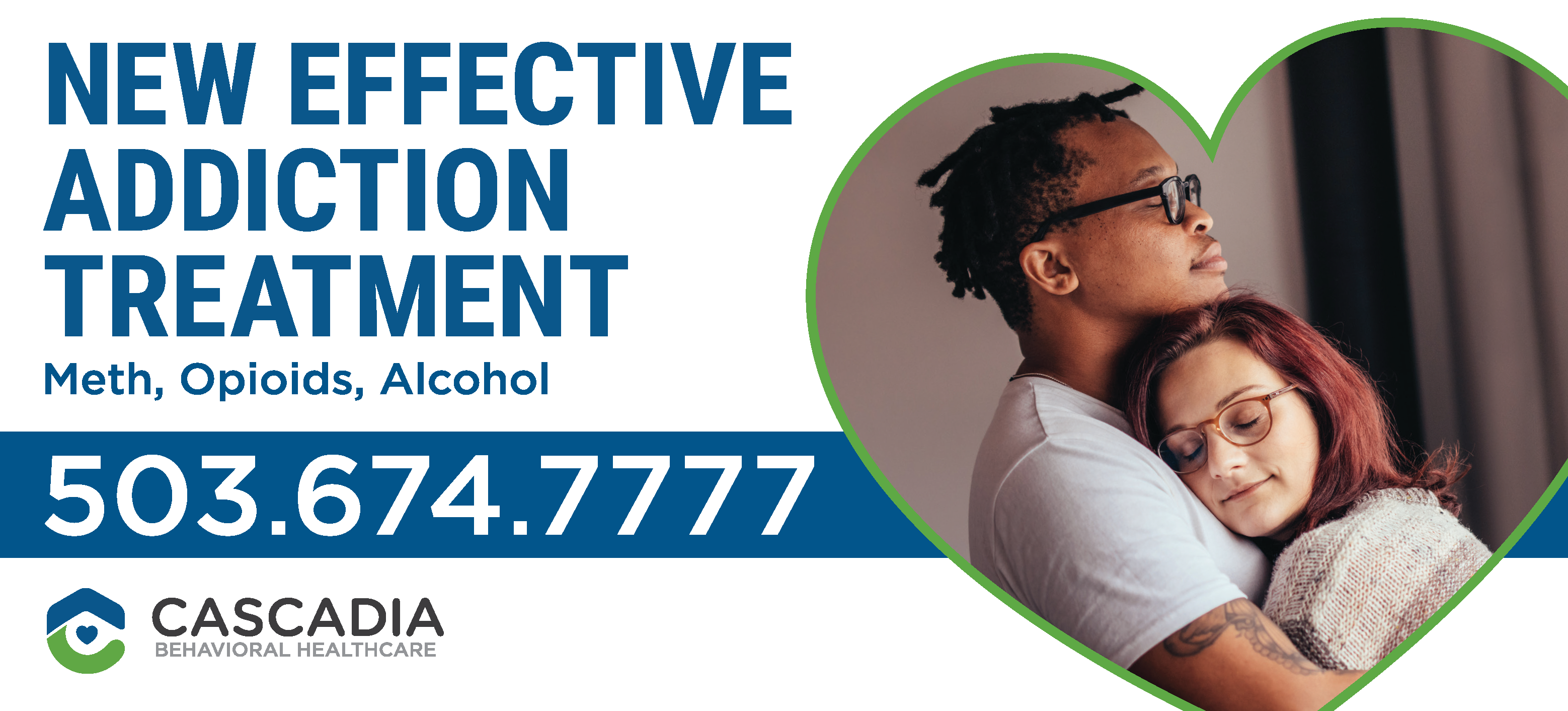May 19, 2022
Cascadia offers new, effective treatment for meth addiction
Cascadia Behavioral Healthcare is offering a new and effective treatment for methamphetamine addiction. Part of Cascadia’s Medication Supported Recovery program, the treatment involves patients taking the only medication combination ever shown to effectively treat meth addiction in a large, placebo-controlled study.
Medication-supported recovery, also known as medication-assisted treatment, involves patients taking medications that have been proven to support the treatment of substance use disorders. Cascadia has offered medication-supported recovery for opioid use disorders since 2018. But until recently, there wasn’t much evidence supporting medication-assisted treatment for methamphetamine addiction.
A groundbreaking 2021 study was the first large-scale trial to indicate that a combination of two familiar medications can be effective for some patients living with meth addiction. The two medications are naltrexone, a medication long prescribed to manage alcohol and opioid use disorders, and bupropion, a medication prescribed as an antidepressant and smoking cessation aid.
“This medication combination shows promise in treating methamphetamine use disorder because bupropion works to decrease cravings caused by dopamine deficiencies, while naltrexone helps block the brain’s internal opioid rush that occurs when using substances, including meth,” said Tracy Winn, nurse practitioner and the medical director of Cascadia’s substance use disorder program. “Essentially, these medications can help people feel better while also dampening the rewarding feelings of using meth.”
A 2021 National Institutes of Health study published in the New England Journal of Medicine followed 403 adults who took either the combination of naltrexone and bupropion or a placebo for 12 weeks. The medication combination helped 13.6 percent of patients with their addictions over the course of 12 weeks, while 2.5 percent of the placebo group saw improvements.
“Methamphetamine use challenging to treat. Historically, there have been no FDA-approved medications to help with treatment,” Winn says. “There has been more focus on medical treatment of opiates and alcohol, since we have approved medications for those substances. In my experience, because of this, people with methamphetamine use disorder have felt left out of the field of addiction medication.
“This medication combination is a way to invite them in, not just to help them with reducing use, but to also help them feel seen and validated,” Winn continued. “We can tell folks with methamphetamine use, ‘We see you, you deserve to feel better, and there is hope.’”
Cascadia’s new medication-assisted treatment program comes at a time when Portland is facing a heightened meth crisis.
“We are seeing the negative impacts of meth in Portland, particularly on our houseless population,” said Cascadia’s President and CEO Derald Walker. “Cascadia is offering hope to individuals living with methamphetamine use disorder. Not only will this new treatment provide a greater chance of recovery from meth addiction, but Cascadia’s integrated health services will support the whole person. All Cascadia clients are offered services that integrate mental health and addiction treatment, primary care, and housing support.”
Cascadia’s medication-supported recovery program for methamphetamine is a pilot program funded by Care Oregon. Patients can volunteer to participate in an evaluation into the effectiveness of the drug combination.
Cascadia’s medication-supported recovery program is available to individuals over the age of 18 living with methamphetamine use disorder. Patients should not be currently taking any form of opioids (street or prescription).
For referrals and more information, call the Cascadia Access, Information and Referral phone number: (503) 674-7777.

